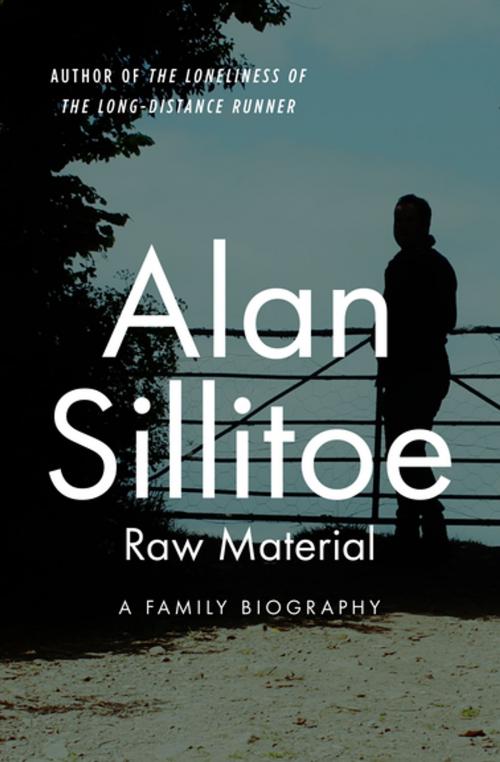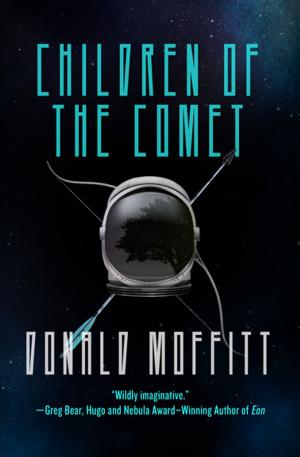| Author: | Alan Sillitoe | ISBN: | 9781504034999 |
| Publisher: | Open Road Media | Publication: | July 12, 2016 |
| Imprint: | Open Road Media | Language: | English |
| Author: | Alan Sillitoe |
| ISBN: | 9781504034999 |
| Publisher: | Open Road Media |
| Publication: | July 12, 2016 |
| Imprint: | Open Road Media |
| Language: | English |
This fusion of novel and memoir from a bestselling British author chronicles the destructive effects of WWI on two working-class families in Nottingham.
An advocate for ordinary people, Alan Sillitoe combines family memoir with exhaustive research on military records, and fuses them with artistic speculation in this inventive and political historical novel. Central to the story are the author’s grandfather, the blacksmith Ernest Burton, and his uncle Edgar, a World War I deserter.
The launching point for this narrative family album is a legless match-seller from Sillitoe’s childhood who “walked” on the streets of Nottingham with his hands. When the young Sillitoe asked his family about the reasons behind this man’s deformity, he heard a series of different accounts: His mother said it was a train accident, his father claimed it was an explosion during the Battle of the Somme, his grandmother was convinced it was a birth defect, and his grandfather declared it was a way of dodging work. Thus Sillitoe sets the tone for a tale in which “anything which is not scientific or mathematical thought is colored by the human imagination and feeble opinion.”
In order to rediscover the fictional truth behind his own spirit, Sillitoe then delves into his heritage. He paints a telling portrait of his maternal grandfather, a blacksmith who hated dogs, despised the people who loved him, and was blinded in one eye by a shred of steel. Separated from society by his illiteracy, and both feared and respected for his instinctual cunning, Ernest was a tyrant to his wife and eight children, a hardworking provider, and a talented craftsman.
On his father’s side of the family, Sillitoe explores the life of his uncle Edgar, “the darling of the family” who enlisted in the British army when the Great War began in 1914. However, when the young man discovered that his service consisted of dysentery, haircuts, and taking orders, he “sensibly” deserts. To avoid the military police, he leaves Nottingham and bicycles furiously on the back roads to his sister’s house in Hinkley, but is caught a few days later in a pub and sent back to his battalion. A persistent man, Edgar deserts a second time and hides out in the forest, but again he is captured and sent just in time to join the Sherwood Foresters on the first day of the Battle of the Somme.
Raw Material spans a century of family history and legends, interweaving personal memories with collected facts and hearsay. The “kitchen-sink realism” Sillitoe is known for takes on a more philosophical and transparent approach in this innovative self-portrait that explores the base matter and inspirations of the esteemed British novelist’s life work.
This fusion of novel and memoir from a bestselling British author chronicles the destructive effects of WWI on two working-class families in Nottingham.
An advocate for ordinary people, Alan Sillitoe combines family memoir with exhaustive research on military records, and fuses them with artistic speculation in this inventive and political historical novel. Central to the story are the author’s grandfather, the blacksmith Ernest Burton, and his uncle Edgar, a World War I deserter.
The launching point for this narrative family album is a legless match-seller from Sillitoe’s childhood who “walked” on the streets of Nottingham with his hands. When the young Sillitoe asked his family about the reasons behind this man’s deformity, he heard a series of different accounts: His mother said it was a train accident, his father claimed it was an explosion during the Battle of the Somme, his grandmother was convinced it was a birth defect, and his grandfather declared it was a way of dodging work. Thus Sillitoe sets the tone for a tale in which “anything which is not scientific or mathematical thought is colored by the human imagination and feeble opinion.”
In order to rediscover the fictional truth behind his own spirit, Sillitoe then delves into his heritage. He paints a telling portrait of his maternal grandfather, a blacksmith who hated dogs, despised the people who loved him, and was blinded in one eye by a shred of steel. Separated from society by his illiteracy, and both feared and respected for his instinctual cunning, Ernest was a tyrant to his wife and eight children, a hardworking provider, and a talented craftsman.
On his father’s side of the family, Sillitoe explores the life of his uncle Edgar, “the darling of the family” who enlisted in the British army when the Great War began in 1914. However, when the young man discovered that his service consisted of dysentery, haircuts, and taking orders, he “sensibly” deserts. To avoid the military police, he leaves Nottingham and bicycles furiously on the back roads to his sister’s house in Hinkley, but is caught a few days later in a pub and sent back to his battalion. A persistent man, Edgar deserts a second time and hides out in the forest, but again he is captured and sent just in time to join the Sherwood Foresters on the first day of the Battle of the Somme.
Raw Material spans a century of family history and legends, interweaving personal memories with collected facts and hearsay. The “kitchen-sink realism” Sillitoe is known for takes on a more philosophical and transparent approach in this innovative self-portrait that explores the base matter and inspirations of the esteemed British novelist’s life work.















